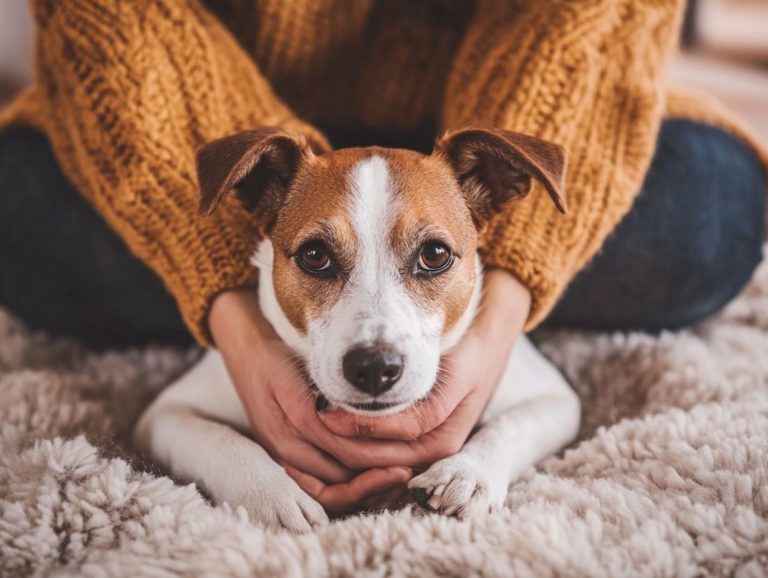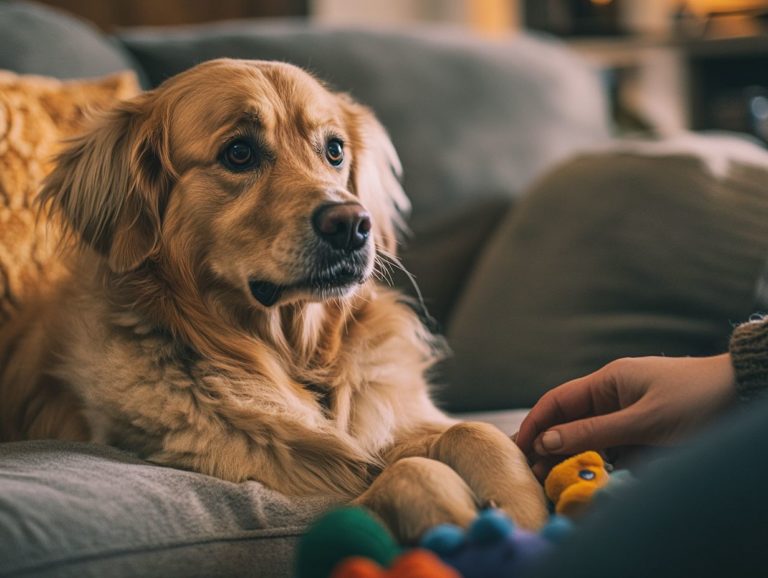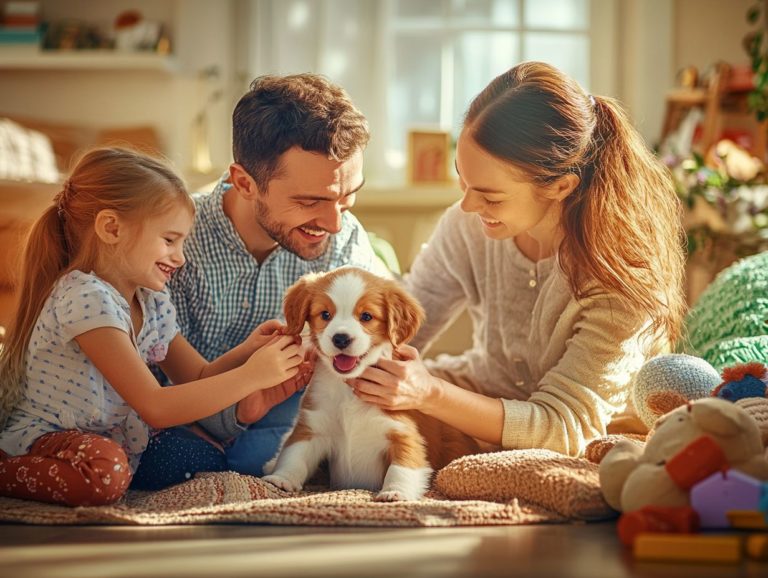Can Professional Training Help with Pet Anxiety?
Pet anxiety is an increasingly prevalent concern for many devoted animal lovers. It significantly affects both pets and their owners.
Understanding the causes and signs of anxiety helps you identify which pets might be struggling and provide the appropriate support they need. This article delves into common triggers and symptoms, as well as effective training programs designed to tackle pet anxiety.
You will also find practical tips for managing anxiety at home, creating a happier and healthier environment for your furry companions.
Learn how you can transform your pet s life starting today!
Contents
Key Takeaways:

- Professional training helps you understand your pet s anxiety for a healthier, happier life.
- Identifying the causes and triggers of pet anxiety is crucial for developing an effective training plan.
- With the right training program and consistent implementation, pet anxiety can be successfully managed.
The Impact of Pet Anxiety
Pet anxiety is a significant concern that impacts both animals and their owners. It can result in emotional distress and potential mental health challenges.
Understanding pet anxiety helps create a peaceful environment where you both can flourish emotionally and mentally.
When dogs feel anxious, they might show distress in various ways, such as cowering or shaking. These fearful behaviors reveal your pet’s emotional struggle and can put a significant strain on you. Watching a beloved companion in distress can stir feelings of helplessness and concern, leading you to search for solutions that meet your pet’s emotional needs.
In these moments, service dogs are specially trained to help people with various needs, providing companionship and support that can ease anxiety for both the dog and you as the owner.
Causes of Pet Anxiety
The causes of pet anxiety can be varied and intricate, often arising from a combination of behavioral triggers that disrupt your dog’s emotional stability.
Factors such as separation anxiety, changes in their environment, and the absence of a consistent routine can elevate your pet’s anxiety levels. It is essential for you, as a caring owner, to identify and tackle these underlying issues to help restore your pet’s peace of mind.
Common Triggers and Contributing Factors
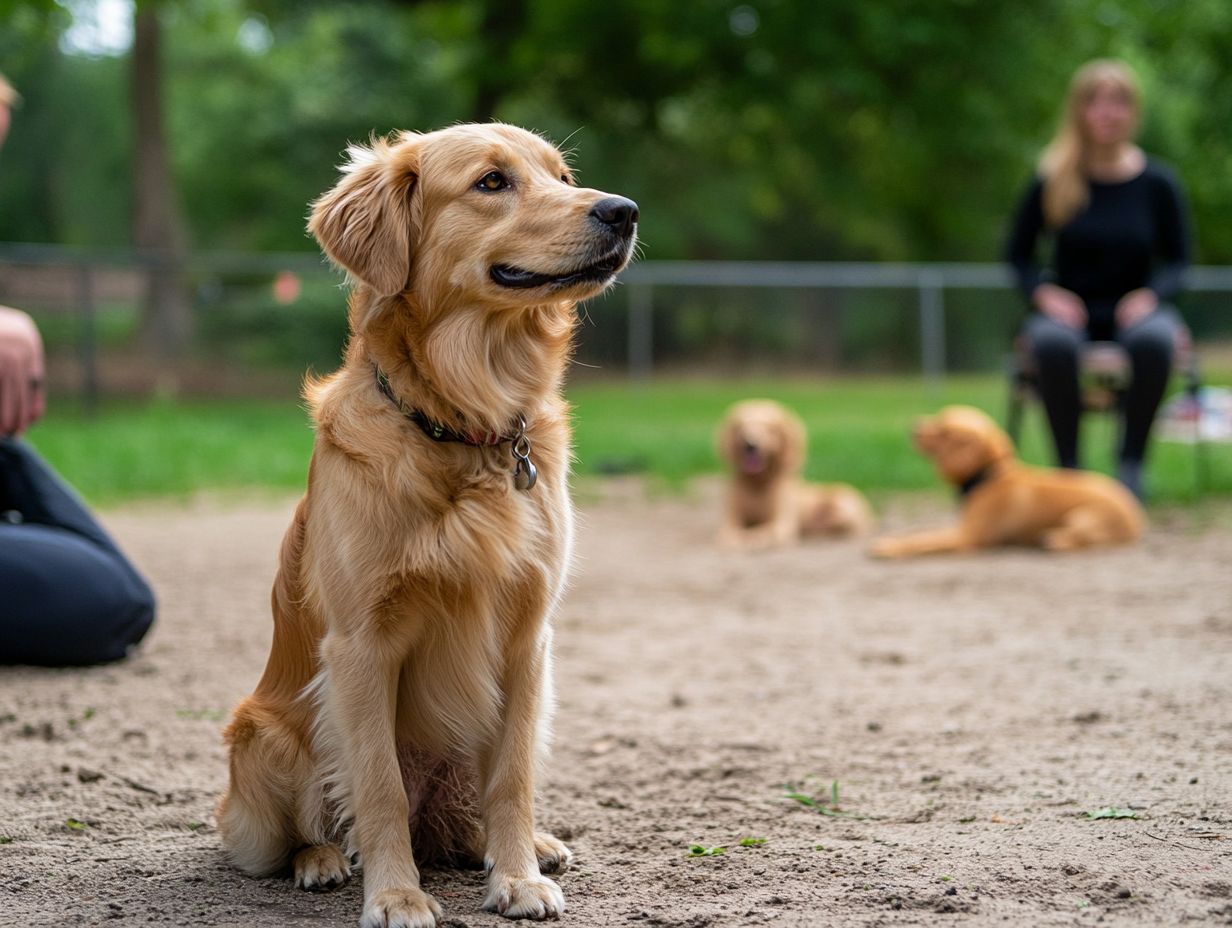
Common triggers and factors contributing to pet anxiety can vary widely, from environmental shifts to behavioral reactions rooted in past negative experiences.
For instance, sudden loud noises like thunder or fireworks can instill a profound sense of fear, leaving pets feeling vulnerable. Changes in their daily routine such as altered feeding times can disrupt their sense of security.
A lack of social interaction, whether due to household changes or fewer opportunities for play, can intensify feelings of isolation.
These factors affect their emotional well-being and can lead to more pronounced anxiety issues, necessitating your careful observation and thoughtful intervention.
Signs and Symptoms of Pet Anxiety
Recognizing pet anxiety signs helps you offer timely support. Anxious dogs can display a range of behavioral and physical indicators that signal their distress.
Being attuned to these cues allows you to provide the care and comfort they need, fostering a more peaceful environment for both you and your beloved companion.
Identifying Behavioral and Physical Indicators
Identifying behavioral and physical signs of anxiety in pets allows you to take proactive measures. Look for signs like cowering or attempts to escape, which clearly indicate distress.
If your pet avoids social interactions, it may feel scared or overwhelmed. Physical signs include rapid heart rates or excessive panting, both linked to stress.
Understanding your dog’s body language, like flattened ears or a tucked tail, helps you identify their feelings. This knowledge lets you step in when needed, making your pet feel safe.
Professional Training for Pet Anxiety
Professional training is vital for addressing pet anxiety, as it equips you and your pet with the skills to manage anxiety. For more information, check out best practices for pet anxiety training.
Through positive reinforcement, you ll discover how to create a calmer, more confident environment for your furry friend.
Types of Training Programs Available

Many training programs can help reduce pet anxiety, including the role of pet trainers in anxiety management. These programs use techniques like positive reinforcement and desensitization.
Among these options, basic obedience training serves as the cornerstone. It teaches vital commands that enhance communication between you and your pet, ultimately creating a sense of security. Additionally, understanding when to consult a professional for pet anxiety can be crucial. Anxiety training focuses on recognizing triggers and promoting effective coping mechanisms, enabling your pet to feel more at ease in stressful situations.
If you need additional support, specialized service dog tasks can be tailored to manage anxiety symptoms, providing assistance in various environments.
Each program plays a crucial role in improving your pet’s behavior and enhancing their overall well-being while strengthening your bond.
Benefits and Success Rates
Knowing the benefits of professional guidance in pet anxiety encourages you to find solutions for your pet’s anxiety. These programs give you tools to improve your pet’s emotional well-being.
Research indicates that positive reinforcement training can yield a remarkable 75% improvement in behavioral responses. This not only helps your pet feel more secure but also reduces their stress in everyday situations.
A case study focused on anxious dogs found that those who engaged in professional training sessions showed marked decreases in anxiety levels and improved social interactions with both humans and other animals, highlighting the role of veterinary professionals in pet anxiety.
With such compelling statistics supporting the effectiveness of these programs, you can invest in professional guidance for your furry companions with confidence.
Managing Pet Anxiety at Home
Managing pet anxiety at home requires a layered approach. Create a calming environment where your pets feel secure.
Tips for Reducing Anxiety in Pets
Here are tips to help reduce anxiety in pets. A calm environment with cozy spots can greatly improve their mood.
To cultivate serenity, minimize loud noises and provide cozy resting areas. Incorporating calming signals, such as gentle petting or soothing tones, can also help your furry companion feel more secure.
Consistent training is essential for reinforcing positive behaviors. Employing reward-based techniques fosters trust and allows your pet to relax more easily.
Engaging in regular exercise and maintaining a structured routine can further alleviate anxiety. Focus on holistic strategies for a happier, less anxious pet.
Frequently Asked Questions
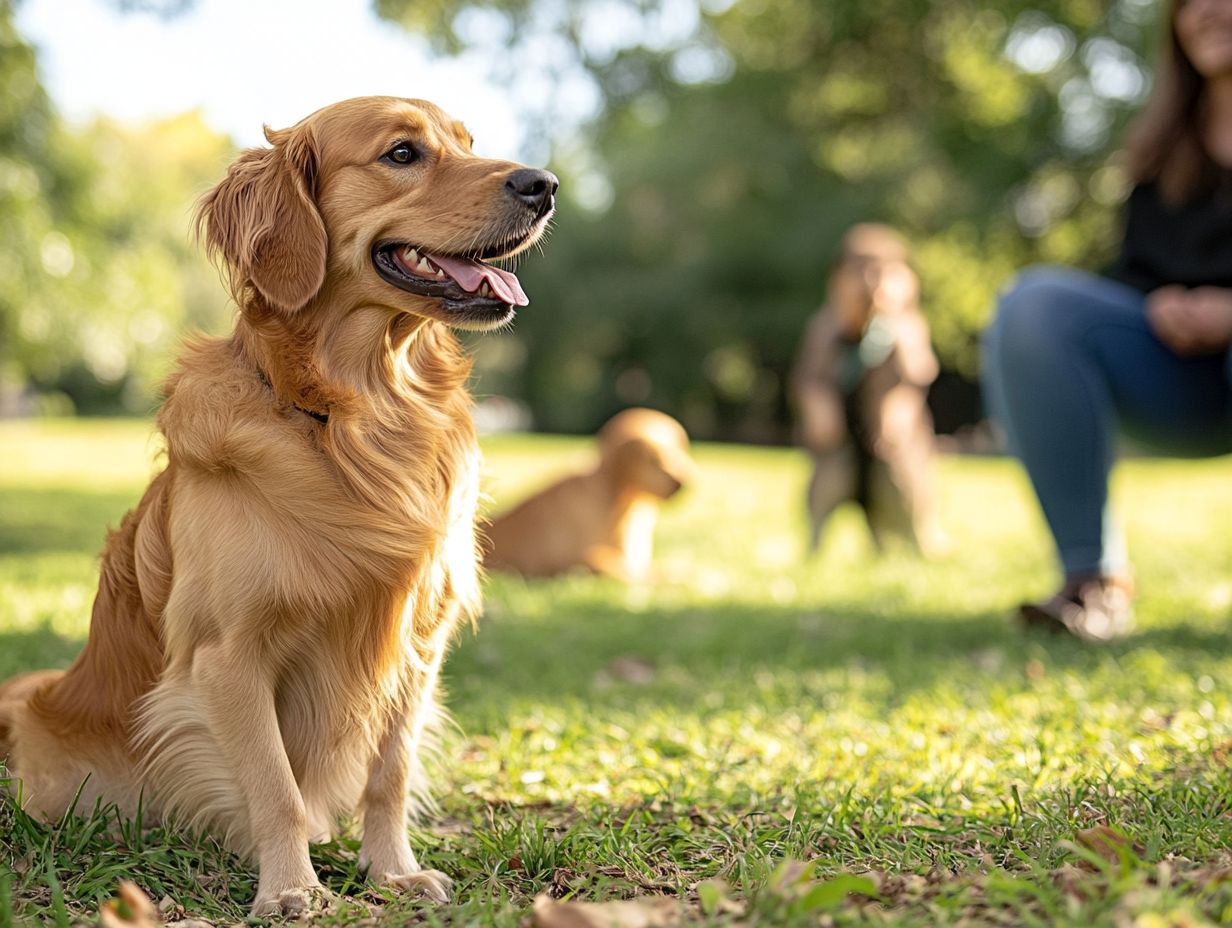
Can professional training help with pet anxiety?
Yes, the benefits of professional training for anxious pets can greatly help them cope with anxiety. Trained professionals use various techniques to improve their overall well-being.
What is pet anxiety?
Pet anxiety is a condition where a pet experiences excessive fear, stress, and worry. It can show up as destructive behavior or avoidance of certain situations.
How can professional training benefit pets with anxiety?
Professional training can teach pets ways to handle stress and change their behavior. Additionally, it can help owners understand their pet’s needs better, including whether therapy animals can help with pet anxiety.
What are some common signs of pet anxiety?
Common signs include excessive barking, destructive behavior, shaking, and restlessness. These signs may vary from pet to pet.
Is professional training the only solution for pet anxiety?
No, it’s not the only solution. Owners can manage their pets’ anxiety through changes in their environment and routine. Additionally, understanding the science behind training anxious pets can be a valuable tool for severe cases of pet anxiety.
What should I look for in a professional trainer for my pet’s anxiety?
Looking for help with your pet’s anxiety? Find a trainer who understands anxiety and has a positive, caring approach, as detailed in what makes an effective pet anxiety counselor!

